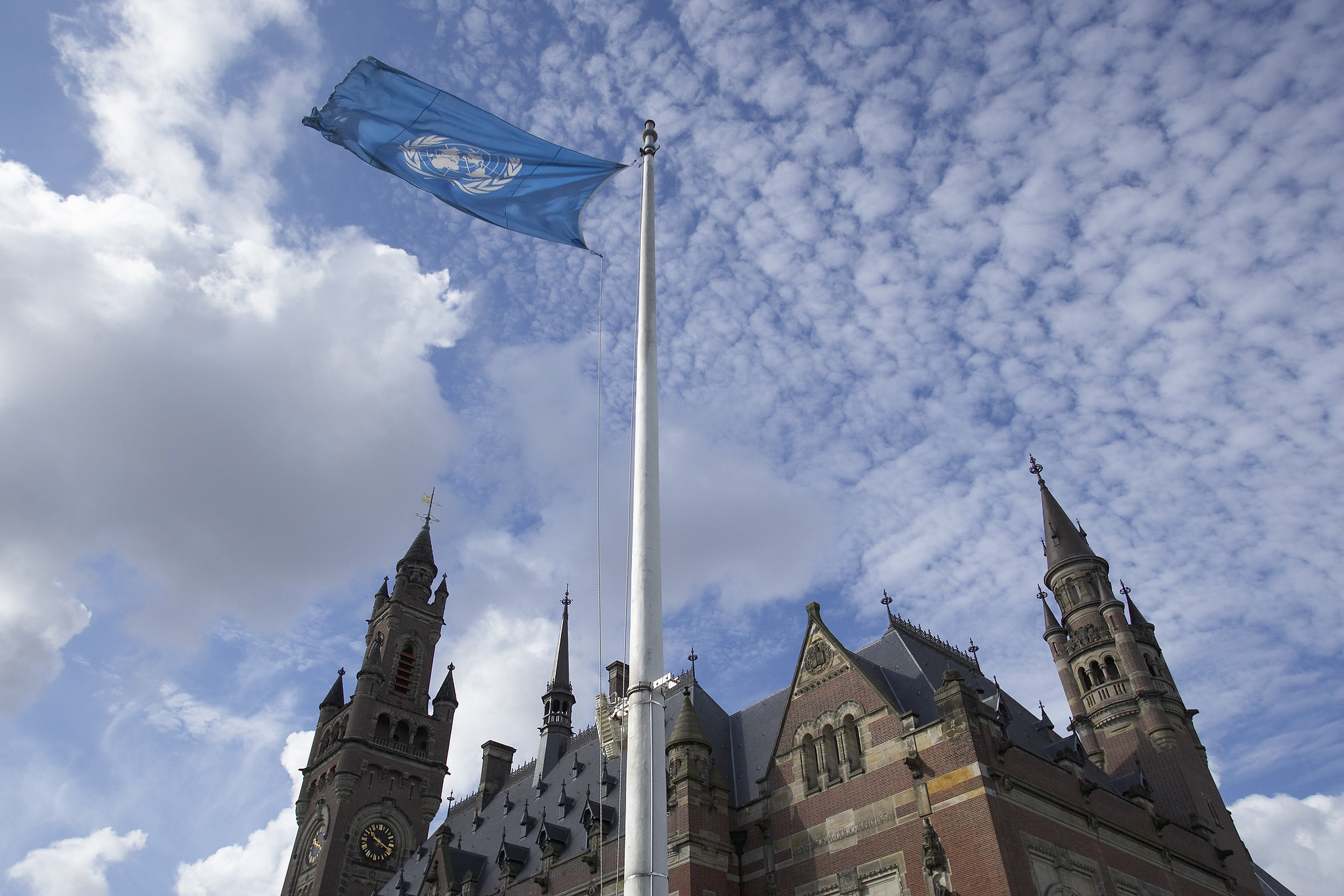
The International Court of Justice (ICJ), on 2 February 2024, rendered its decision on the preliminary objections in the case concerning Allegations of Genocide under the Convention on the Prevention and Punishment of the Crime of Genocide (CPPCG) -Ukraine v. Russian Federation-, with 32 States intervening. In its judgment, the ICJ unanimously dismissed Russia’s procedural objections, ruling that the Court can decide on the merits whether Ukraine is responsible for committing genocide in the Donetsk and Luhansk Regions, in violation of the CPPCG. FIDH, Center for Civil Liberties (CCL), Kharkiv Human Rights Protection Group (KHRG) and Anti-Discrimination Centre Memorial (ADC Memorial) welcome this decision and stress the importance of the admissibility of such reverse compliance claims in light of the anti-Ukrainian propaganda and hate speech spread by Russian officials and State media.
However, the ICJ upheld Russia’s objection regarding subject-matter jurisdiction by a 12 to 4 vote, ruling that false allegations of genocide and subsequent uses of force do not fall within the scope of the CPPCG. This decision raises significant concerns about the interpretation and application of international law in complex geopolitical contexts.
“While we respect the ICJ’s legal process, this ruling potentially narrows the scope of the Genocide Convention and challenges the international community’s ability to address serious human rights violations. It underscores the necessity for constant evolution and adaptation of international law to effectively safeguard human rights in an increasingly complex global landscape”, stated Pavel Sapelka, acting Vice President of the International Federation for Human Rights (FIDH).
“This ICJ decision of 2 February 2024 underscores the need for continuous evaluation and adaptation of international law, including the interpretation of the Genocide Convention, to effectively address evolving global challenges and not limit the avenues available for addressing international crimes. Civil society will continue to closely monitor the developments in this case and advocate for the protection and promotion of human rights”, emphasized Yevgeniy Zakharov, Director of the Kharkiv Human Rights Protection Group (KHRG).
On 31 January 2024, the ICJ delivered a landmark judgment in the Ukraine v. Russia case concerning the Application of the International Convention for the Suppression of the Financing of Terrorism (ICSFT) and the International Convention on the Elimination of All Forms of Racial Discrimination (CERD). While the Court dismissed most of the allegations presented by the Ukrainian side, our organisations welcome ICJ’s acknowledgment of the serious and ongoing violations committed by the Russian Federation, including the failure to investigate terrorism financing, and the suppression of Ukrainian language and culture in Crimea. The Court found that the Russian Federation failed to fulfill its obligations under the ICSFT by not taking adequate measures to investigate the financing of terrorism. Moreover, the Court’s ruling that the Russian Federation violated certain obligations under the CERD, particularly regarding the educational rights of the Ukrainian-speaking community in Crimea, while limited, is a significant recognition of the importance of protecting minority rights and cultural identity.
“The UN Committee on the Elimination of Racial Discrimination highlighted the violation of Crimean Tatars’ rights, including cultural, linguistic, and political aspects, along with targeted repressions. However, these issues were only partially considered by the ICJ”, noted Stefania Kulaeva, Head of the Anti-Discrimination Centre Memorial. “The Court also recognized violations against Ukrainians’ educational rights in Crimea, similar to the breaches experienced by the Crimean Tatar community, like the closing of schools and kindergartens, pointing to a pattern of racial discrimination, but these issues are not fully addressed by the Court.”
“There are no overtly negative consequences of this mixed decision of the International Court of Justice of 31 January”, said Oleksandra Matviichuk, Head of the Center for Civil Liberties (CCL), Vice President of the International Federation for Human Rights (FIDH). “Ukraine has lost nothing. Rather, it’s our expectations that weren’t met. Ukraine should continue its legal fight, focusing on more thorough preparation and improved evidence collection of human rights violations and crimes committed by the Russian Federation in Ukraine. This approach will pave the way for future legal victories and uphold justice.”
Therefore, FIDH and its member organisations call upon Russia to act in accordance with its international obligations, and urge States globally to take immediate and concrete actions to hold perpetrators of international crimes accountable, and prevent the further commission of serious human rights violations in Ukraine, including those related to terrorism financing and racial discrimination.









 Feedback
Feedback